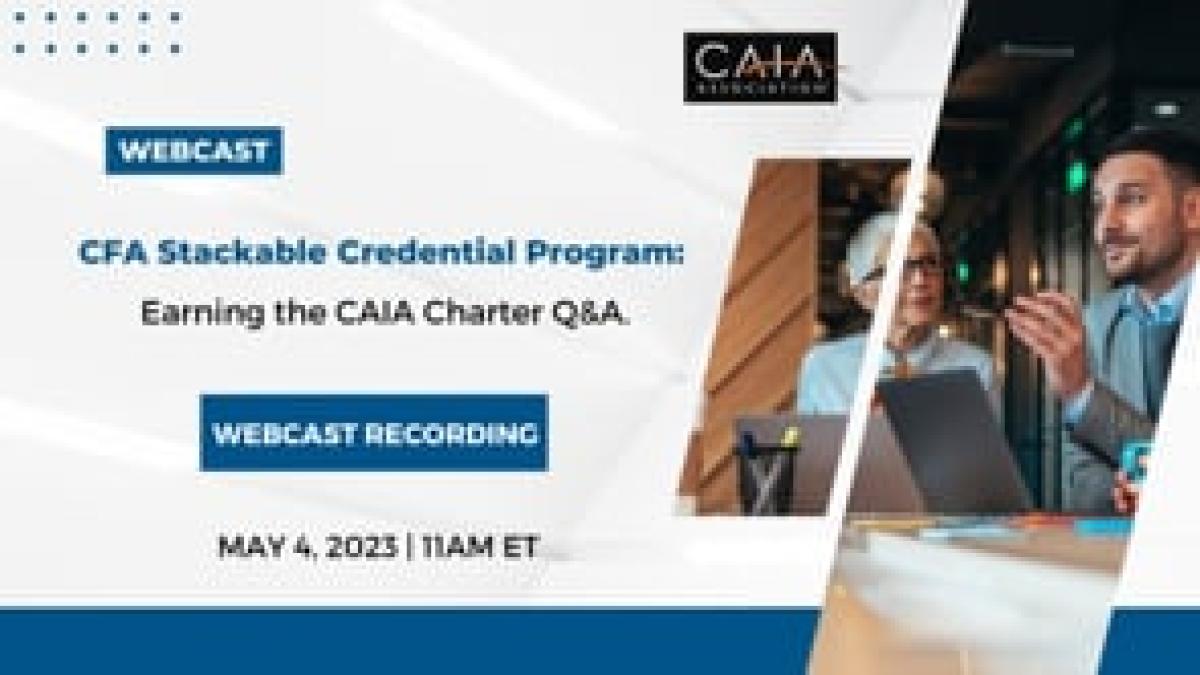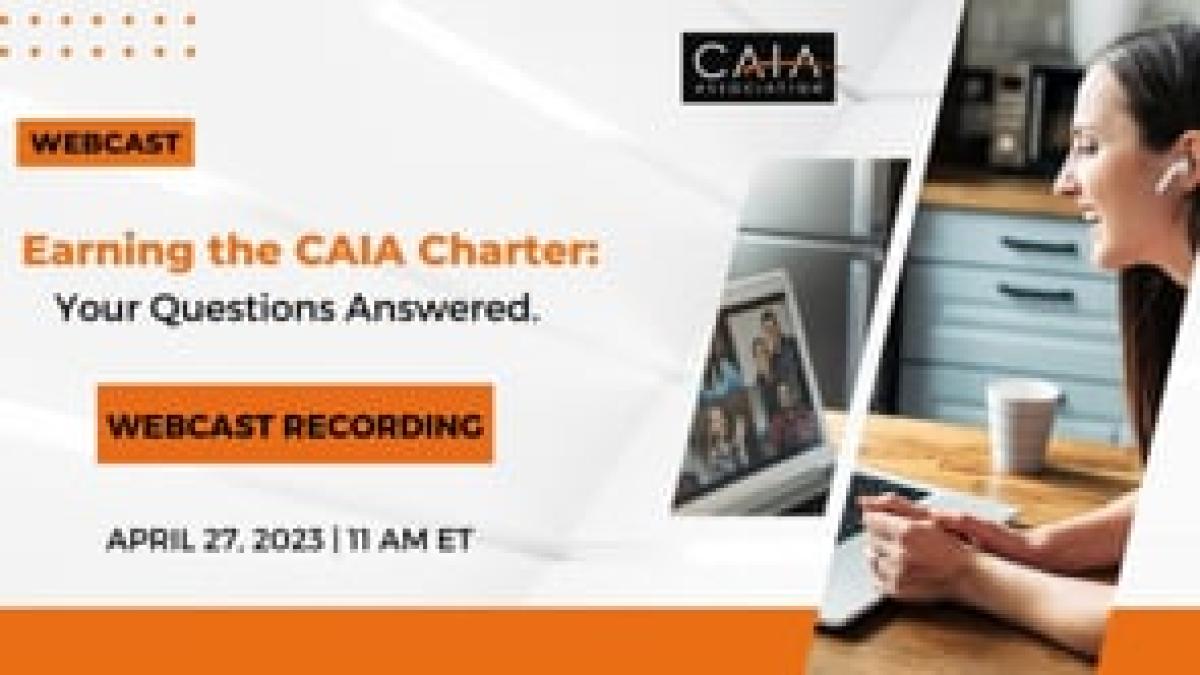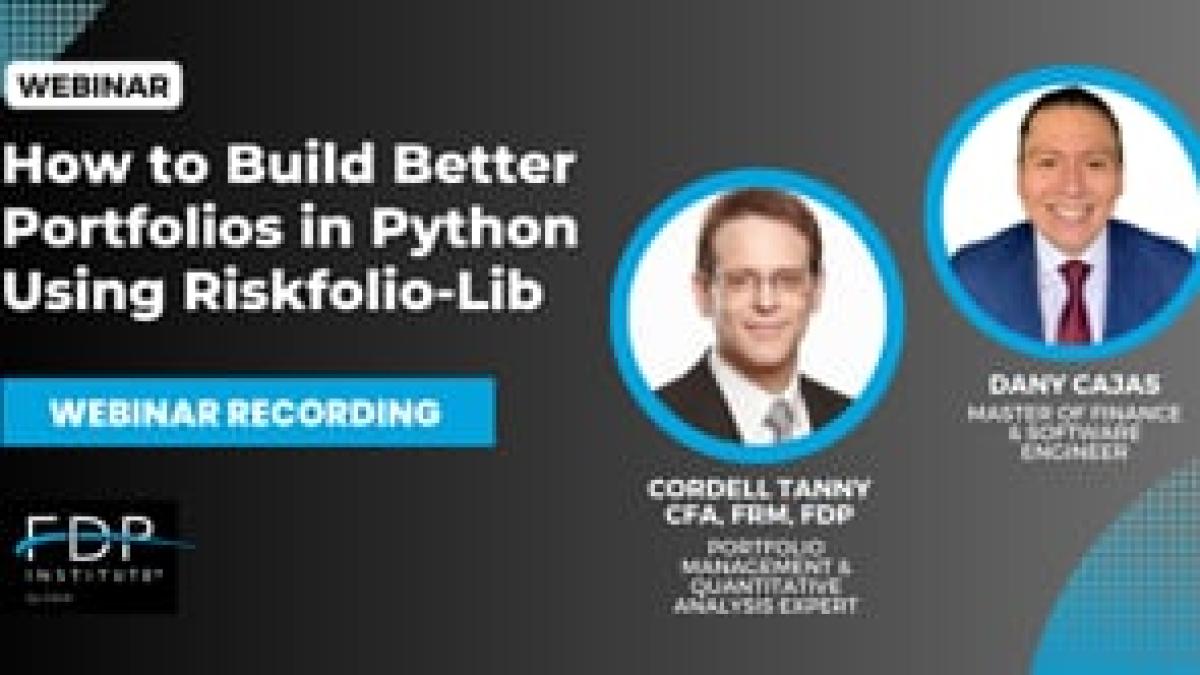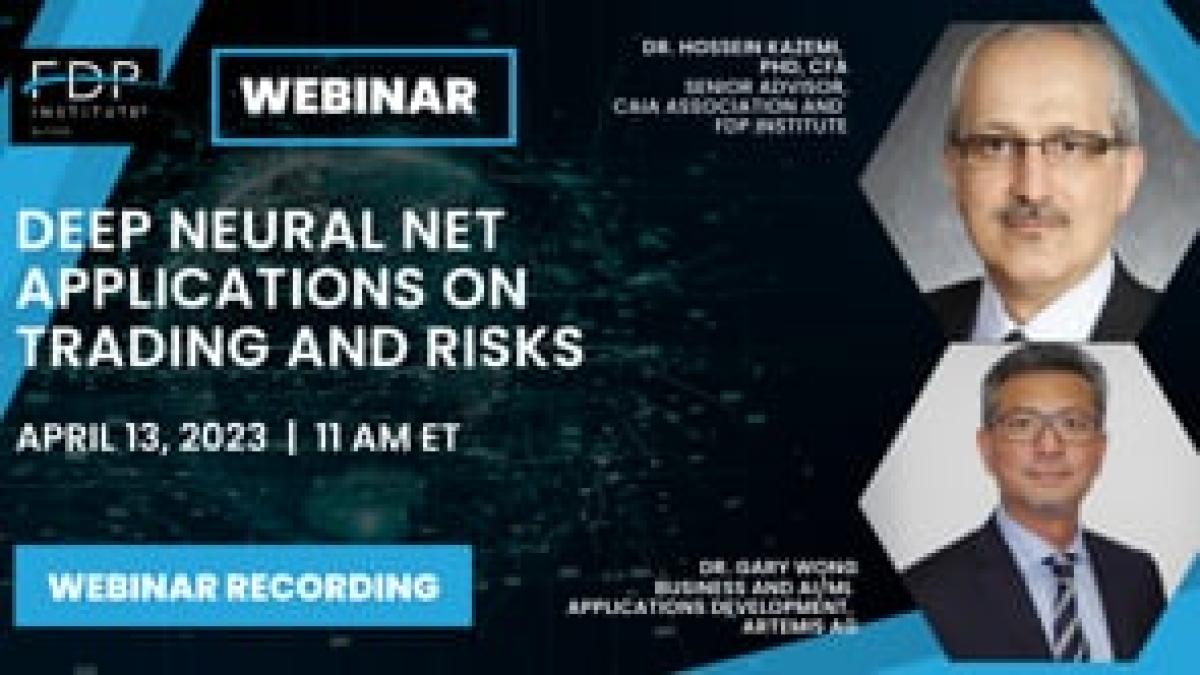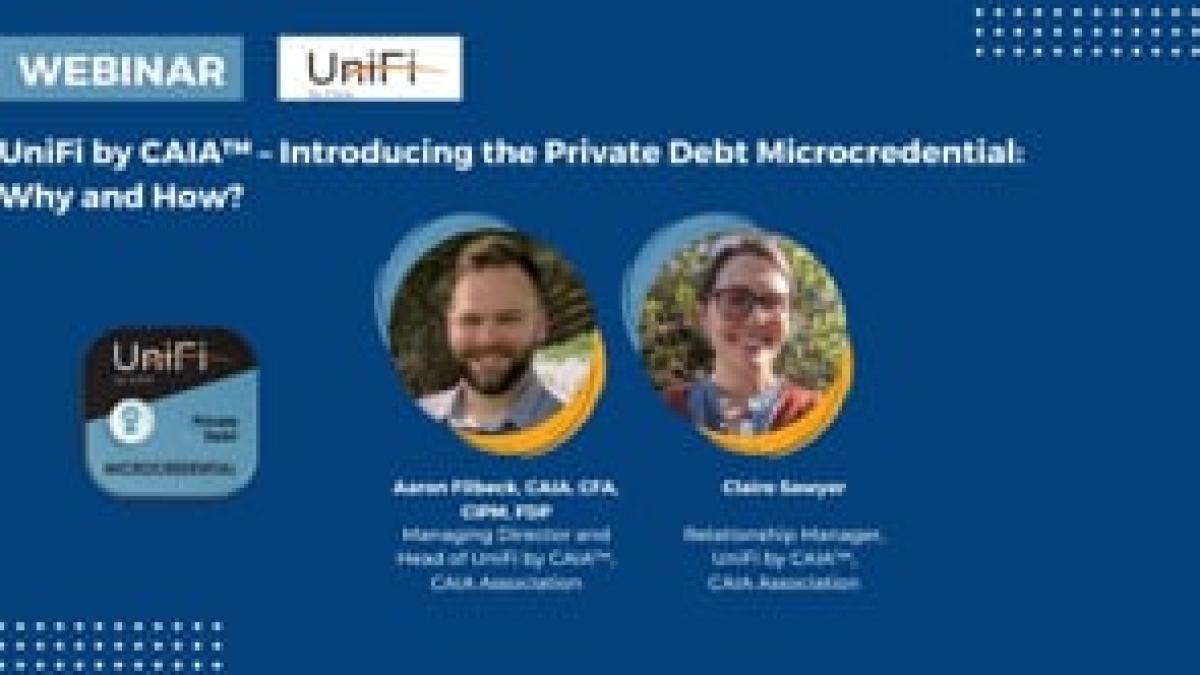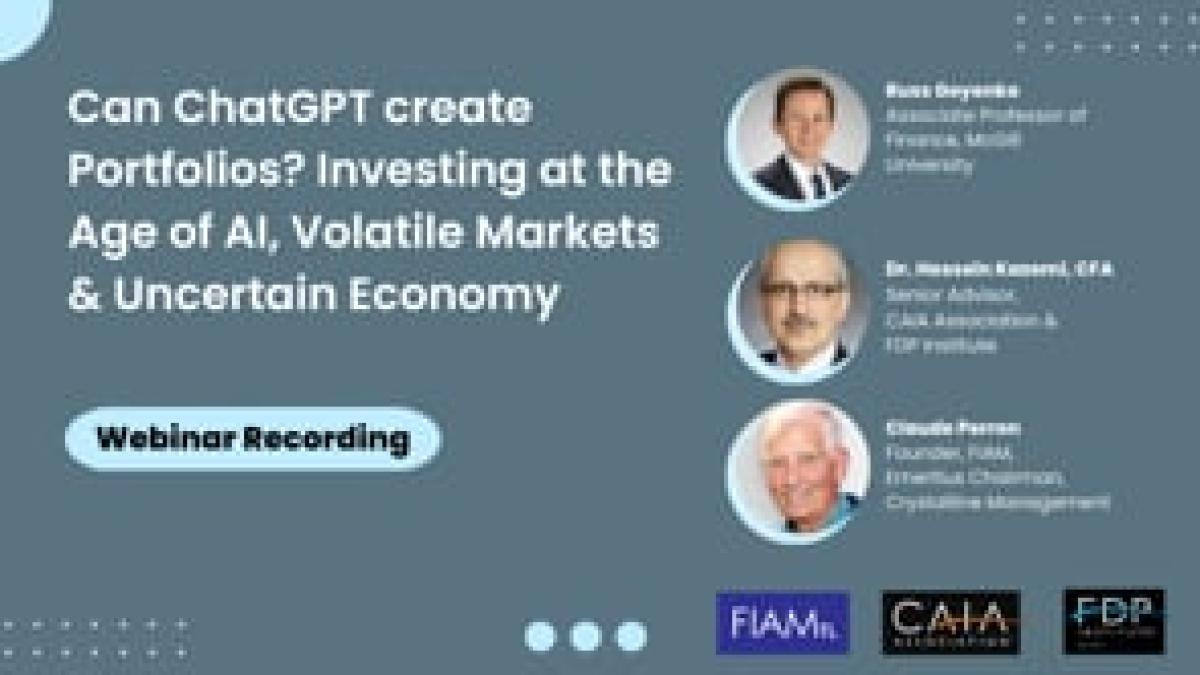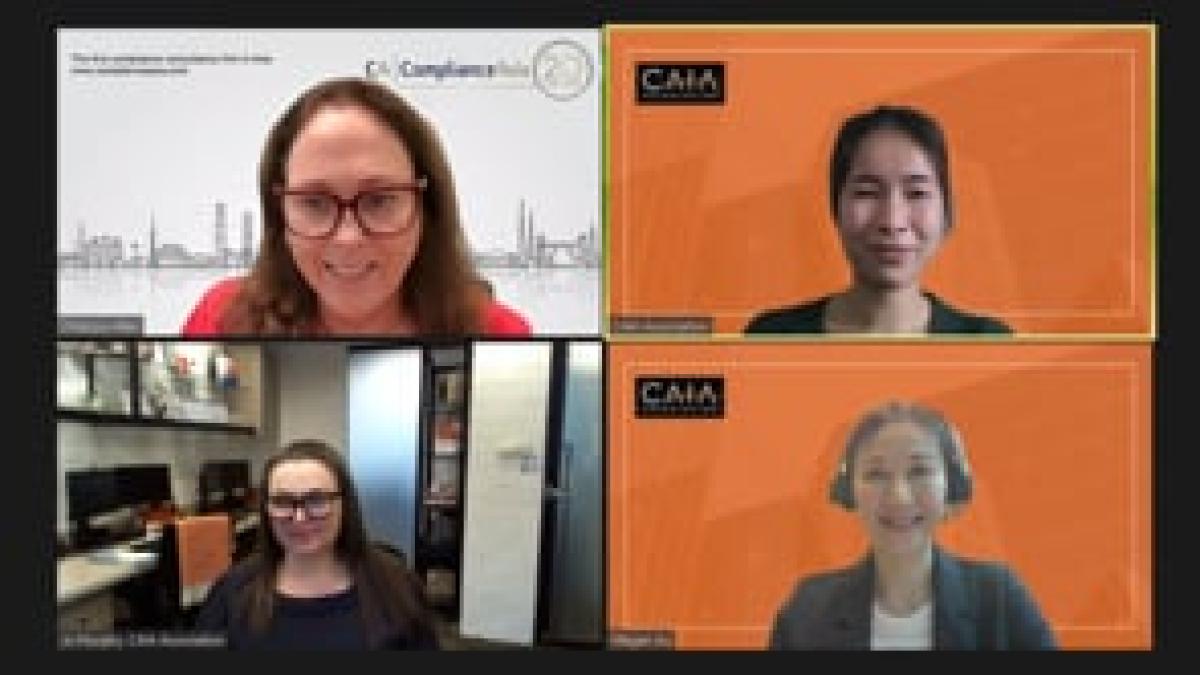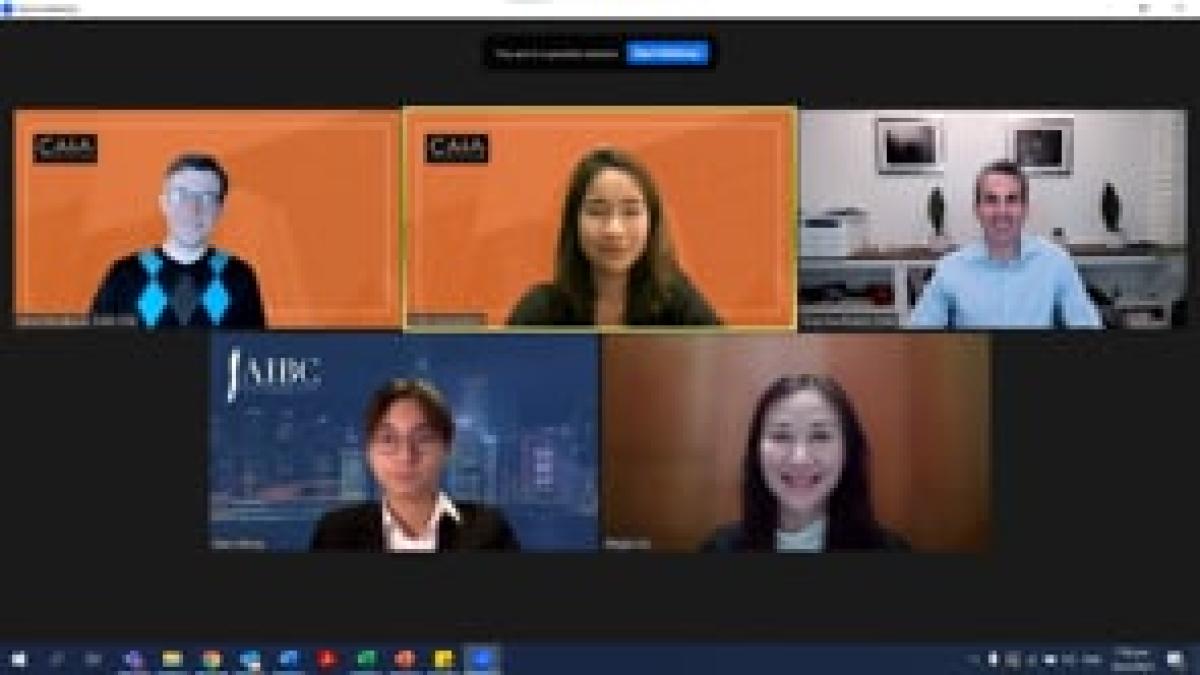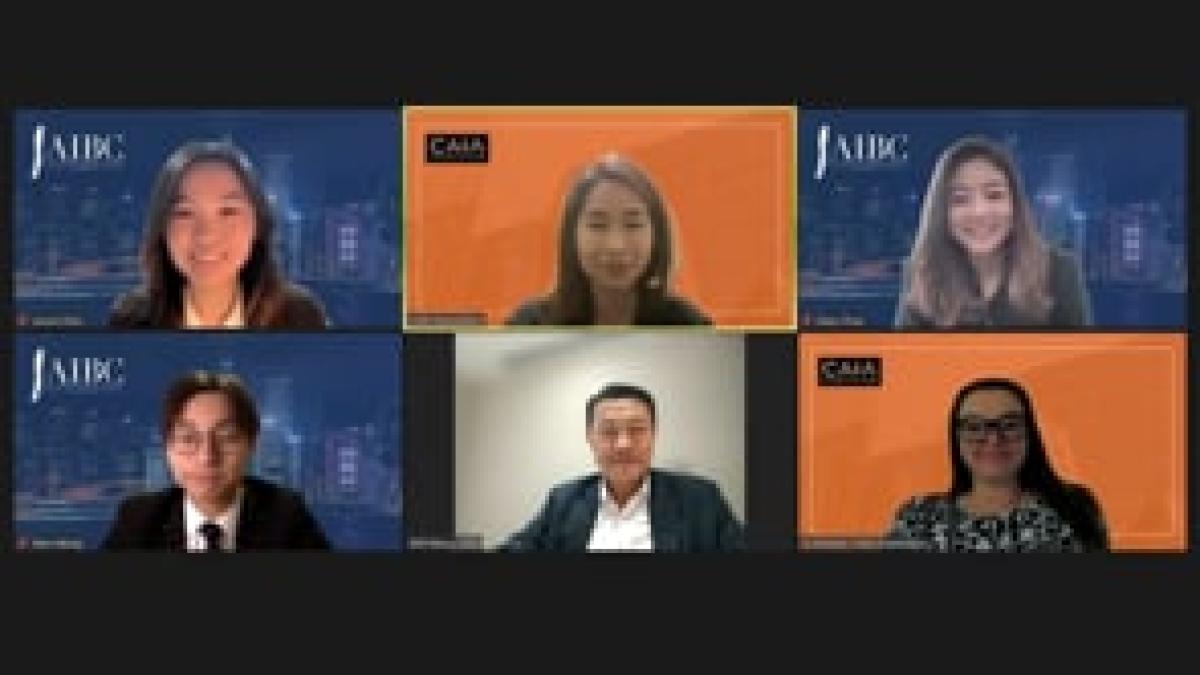Recorded Webcasts
Are you a CFA charterholder? Earning the CAIA designation, the global benchmark of alternative investment education, stacked with your CFA charter, provides a powerful boost to your alts knowledge and your industry credibility. This exclusive "Ask Us Anything" Virtual Q&A session was the perfect opportunity to hear from the CAIA Team about the CFA Stackable Credential Program. Questions were answered about eligibility, applying for the program, the CAIA Level II curriculum, and tips to ensure a successful exam experience! Nelson Lacey, PhD, Senior Associate Director of Exams, Steven Novakovic, CAIA, CFA, Managing Director, CAIA Curriculum, and Mirjam Dekker, Director of Candidate and Member Relations answered to all of your important questions in preparation for earning the CAIA Charter.
Preparing for, taking, and passing the CAIA exams is challenging — and for good reason! A CAIA Charterholder represents a demonstrated level of competency and an unwavering commitment to a set of ethical standards critical for client-focused fiduciaries. CAIA's EVP, John Bowman, CFA, Managing Director, CAIA Curriculum, Steven Novakovic, CAIA, CFA, and Director of Candidate and Member Relations, Mirjam Dekker, hosted an "Ask Us Anything" virtual Q & A session for an exclusive opportunity to ask any questions about the CAIA exam and navigating the path to becoming a CAIA Charterholder. Learn from other participants' questions and hear a few tips for ensuring a successful exam experience! This session was open to all who were interested in learning more about either the Level I or Level II CAIA exam.
In this webinar, we introduced you to Riskfolio-Lib, a powerful open-source library for portfolio optimization in Python created by Dany Cajas. Riskfolio-Lib provides a range of portfolio optimization techniques, risk management tools, and performance analytics to help investors design and manage their portfolios effectively. Dany Cajas demonstrated some popular use cases and discussed with FDP Charterholder, Cordell Tanny how this library has evolved. It includes not only traditional methods of optimization, but also contains some of the most modern techniques available.
Many cutting-edge and AI/ML technologies have matured from R&D into robust tools in the past few years. Successful applications tend to be correctly scoped to provide immediate impact (3-6 months) to resolve existing bottlenecks, and by re-imagining a fresh approach on ‘how things are done’, through re-working of critical but implicit/unquestioned assumptions. This talk between Dr. Hossein Kazemi, FDP Institute and Dr. Gary Wong, Artemis AG focused on applying Deep Neural Net (DNN) on 2 areas.
Private debt is an enormously popular alternative investment asset. Given its volume history and upward trajectory, there is no wonder why private wealth management teams find it compelling.
Master this in-demand industry knowledge with the UniFi by CAIA™ Private Debt Microcredential.
In this session, we shared why this microcredential is designed specifically to meet the private debt educational needs of the broader private wealth management industry, including asset management/GP distribution, intermediaries, and independent financial advisors.
We also gave an "inside look" at a private debt module and how to access the UniFi by CAIA™ platform to get started immediately!
The market for secondary investments has dramatically shifted in recent years with the evolution of GP led transactions. CAIA Philadelphia hosted a panel discussion that dove into the myths and realities around alignment of interests, trophy versus tail end assets, and buyer and seller motivations.
Nowadays, the availability of alternative data and their adoption in the asset management industry to improve investment decision processes is a widespread alternative approach. It comes with the help of Machine Learning and Artificial Intelligence techniques that allow the processing of these data, reducing their noise, and converging Big Data into Smart Data.
Russ Goyenko discussed with Dr. Hossein Kazemi how long-term investors should form portfolios. They delved into how they should evaluate securities, portfolios, and managers. Watch to learn more about how they adapt to time-varying expected returns, volatilities, correlations, and many factors, signals, and strategies.
APAC’s Compliance and Regulatory Landscape continues to evolve. With impacts from western regulatory leaders increasingly being adopted, alongside homegrown developments, fast-paced integration and change is certainly seen throughout the APAC. This too is presenting a more unified field and robust framework across the industry.
To learn more, watch to hear from ComplianceAsia’s Founder and CEO – Philippa Allen – as she shared her insights on core themes impacting the field, touched on recent enforcement trends, spotlighted advancements in cybersecurity, AML, and took us through suggestions on what’s likely ahead.
Philippa’s presentation was followed by a conversation moderated by CAIA’s APAC Managing Director, Jo Murphy where themes showcased during the presentation were discussed and audience questions addressed.
In Q4 2022, Coinbase surveyed 140 institutional investors to gauge the sentiment of digital assets. 72% of respondents had a positive view and indicated that digital assets are here to stay. While many institutions may not have made a direct investment into digital assets (i.e. buying bitcoin), exposures to digital assets and blockchain technology are very likely in the vast majority of institutional portfolios whether it be through a venture capital fund, hedge fund, or publicly traded company. Given the prevalence and outlook for continued growth in this area, it is essential for investors to know what is in their portfolio and how it differs across the different avenues.
Are you familiar enough with the alternative investment landscape, and ready for all that’s ahead? What Do You Need to Know?
The world of alternative investments and interest in them has never been greater. Stimulated by investors keen to seek alternative forms of investment products, delivering differentiating return sources, and diversifying away from a more traditional equity / fixed income and cash portfolio, understanding this sector is key.
Watch as Jo and Will shared their views, provided key take-aways and answered your questions to ensure you’re ready to take advantage of what future career opportunities might hold.



